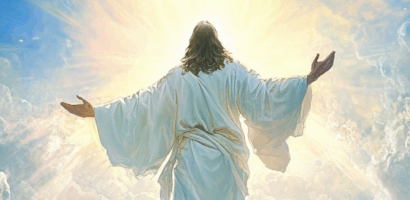 “The Jews” in John constitute Israel’s formal religious authority
“The Jews” in John constitute Israel’s formal religious authority
First, the Jews have authority to send priests and Levites to inspect John the Baptist’s ministry. What may be even more significant is that John responds to their inquiries (1:19-28). We read:
“And this is the witness of John, when the Jews sent to him priests and Levites from Jerusalem to ask him, ‘Who are you?’ And he confessed, and did not deny, and he confessed, ‘I am not the Christ.’ And they asked him, ‘What then? Are you Elijah?’ And he said, ‘I am not.’ ‘Are you the Prophet?’ And he answered, ‘No’ They said then to him, ‘Who are you, so that we may give an answer to those who sent us? What do you say about yourself?’He said, ‘I am a voice of one crying in the wilderness, ‘Make straight the way of the Lord,’ as Isaiah the prophet said.” Now they had been sent from the Pharisees. And they asked him, and said to him, “Why then are you baptizing, if you are not the Christ, nor Elijah, nor the Prophet?”John answered them saying, “I baptize in water, but among you stands One whom you do not know.
Note that it is the priests and Levites who have been sent by “the Jews” from Jerusalem to inspect John’s activity (1:19). This statement shows that whoever else “the Jews” were they were Jerusalem formal authorities. Remember that “the Jews” in John do not only consist of the priestly elites, but also of Jerusalem’s powerful families many of whom were Pharisees. We may never know who first initiated such an enquiry. It is reasonable to suggest, however, that since the Pharisees were represented in a greater number outside of Jerusalem where Jesus was becoming very popular, it were the Jerusalem aristocrats some of whom were Pharisees that may have requested such an investigation (“Now they had been sent from the Pharisees” or “Now some Pharisees who had been sent”.
To receive more information about learning Biblical Languages with Hebrew University of Jerusalem/eTeacher Biblical program online at affordable cost, please, click here.
Second, we read that because of “the Jews” the people were afraid to talk, even negatively, about Jesus in public. This fear of speaking about Jesus either positively or negatively would not make sense unless “the Jews” were the religious authorities who were simply bent on stamping out any public discussion about revolutionary movements that could threaten the status quo:
But when His brothers had gone up to the feast, then He Himself also went up, not publicly, but as it were, in secret. The Jews therefore were seeking Him at the feast, and were saying, “Where is He?” And there was much grumbling among the multitudes concerning Him; some were saying, “He is a good man”; others were saying, “No, on the contrary, He leads the multitude astray.” Yet no one was speaking openly of Him for fear of the Jews. (John 7:10-13)
Third, “the Jews” were considered by lay-people as the formal representatives of the religious authorities (7:14-15, 25-26):
Not until halfway through the Feast did Jesus go up to the temple courts and begin to teach. The Jews were amazed and asked, “How did this man get such learning without having studied?”Jesus answered, “My teaching is not my own. It comes from him who sent me… At that point, some of the people of Jerusalem began to ask, “Isn’t this the man they are trying to kill? Here he is, speaking publicly, and they are not saying a word to him. Have the authorities really concluded that he is the Christ? (John 7:25-26)
Fourth, “the Jews” challenged Jesus to submit his candidacy for Messiahship to them. Jesus refused, saying that His father and his deeds are enough, thus rejecting the authority of Jerusalem rulers (“the Jews”):
The Jews gathered around him, saying, “How long will you keep us in suspense? If you are the Christ, tell us plainly.” Jesus answered, “I did tell you, but you do not believe. The miracles I do in my Father’s name speak for me, but you do not believe because you are not my sheep (John 10:24-27).
This text is most often read as an instance of Jesus’ general lack of clarity in declaring his Messiahship. The request of “the Jews” should not be read: “How long will you keep us in suspense? If you are the Christ, tell usplainly,” but “How long will you keep us in suspense? If you are the Christ, tell us plainly.” From the standpoint of “the Jews”, given their religious authority as the formal representatives of the Judean religion, their authority to validate Jesus’ candidacy for Messiahship was not being honored. Jesus drew large crowds who followed him. The blind saw, the lame walked, lepers were cured, the deaf heard, and the dead came back to life (Mat.11:2-5). Jesus’ identity as Messiah was self-evident, but he had failed to declare himself as such to the Jerusalem authorities. This was the reasoning behind their demand (How long will you keep us in suspense?). He, however, consistently stated that his miracles, and therefore his Father’s witness of his Messiahship, were enough to establish him as God’s Messianic Servant (Jn. 10:25-42). Jesus refused to acknowledge the Jerusalem rulers’ authority over him and by extension, over the whole of Israel. Jesus was the One to Whom Israel’s Covenantal Lord had entrusted such authority and therefore submitting himself to the illegitimate authority was out of the question (Matt.26:63-64).
To receive more information about learning Biblical Languages with Hebrew University of Jerusalem/eTeacher Biblical program online at affordable cost, please, click here.
© By Eli Lizorkin-Eyzenberg, Ph.D.
To sign up for weekly posts by Dr. Eli, please, click here. It is recommend by Dr. Eli that you read everything from the begining in his study of John. You can do so by clicking here – “Samaritan-Jewish Commentary”.





[…] they find in this brilliant Johanine Chiasm a new, more systematized emphasis. Jesus is the real authority, not hoi Ioudaioi; they failed to provide meaningful leadership for God’s people Israel. […]
[…] we cannot know this for sure, it is probable that Nicodemus was a member of the Sanhedrin, the Jewish ruling council whose limited authority was sanctioned by Roman government. It is obvious that Nicodemus had an […]
[…] we cannot know this for sure, it is probable that Nicodemus was a member of the Sanhedrin, the Jewish ruling council whose limited authority was sanctioned by Roman government. It is obvious that Nicodemus had an […]
[…] The authority that Jesus displayed in the prophetic action of cleansing the temple was once again highlighting the basic question that was implicitly asked – “Who is and who should be in charge of God’s people Israel?” The gospels answer predictably – Jesus. The text above, vs.23-25, must not be separated from the preceding verses 13-22. Both describe the same thing – Jerusalem during the Passover. We must see vs. 23 continuing what was began in Jerusalem some verses before. […]
[…] In another instance, opposition from hoi Ioudaioi was seen in “Jewish” Galilee in Kfar Nahum (Capernaum). In that passage from Jn.6:24-59, we read that the crowd, together with the assembled leadership of Kfar Nahum’s synagogue, asked Jesus to perform miracles as verification of his authority. Jesus characteristically challenged the Judean authority structure, saying that Judean authority ought not to reside with the current Jerusalem leadership but with His Father (Jn.6:24-59). In this case also, hoi Ioudaioi in Kfar Nahum should be viewed as the adherents or religious affiliates of “Hoi Ioudaioi proper” – Jerusalem’s ruling elite. […]
[…] Passover of the Jews was at hand, and Jesus went up to Jerusalem. 14 In the temple he found those who were selling oxen and sheep and pigeons, and the money-changers […]
Thank you. I always have thought that “jews” were the power-group of Israel, the religious-related one
Jesus had already known the hardness of their hearts, He knew long before for that’s the very reason He came, to fulfill the prophecies. It was not His time to be revealed as Messiah yet at that point, for He had a divine commission to accomplish first. What if He point-blank proclaimed Himself right there and then as the Messiah without shedding blood sacrifice? Then, there is no perfect atonement for man’s sins to appease the Father. He could have failed to meet the Goal of His coming, and mankind never have any chance of eternal redemption in His Name.
Christ’s treatment to the unbelieving Jews was not of hatred, but of wonder over their slowness of understanding in relation to all what He had performed before their eyes based on Scriptural truths pointing to Him, the Messiah. Jesus Christ knew He had to undergo rejection for more reasons,’…for His time had not yet come …’ at that very occasion of interrogation by the unbelieving Jews.
Dear Ruth,
You may find this post interesting http://christianstudies.eteacherbiblical.com/index.php/2012/08/john-1-10-12/
Dr. Eli,
Your clarification of the emphasis and meaning of John 10:24-27 makes a lot of sense, but I had never seen it that way before. Thank you for the enlightenment.
I wonder about the expectations of the authorities that Jesus should seek confirmation from them as to who He was? Did Barabbas, for example, seek such confirmation?
Another thought – how much weight did ‘public opinion’ have in their thoughts? There were times when the authorities seemed really afraid of the crowd and yet they also seemed anxious to decide on His authenticity which could be fraught with danger.
those are all great questions. Great conclusions are often dependent upon great questions.